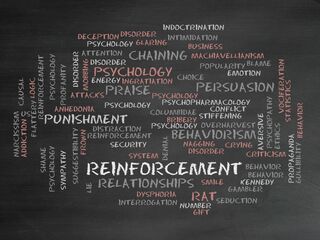Environment
Behavioral Principles Can Promote a Prosocial Society
How to develop a thriving, nurturing society from behavioral science.
Posted July 21, 2020

Western society typically promotes neo-liberal economic values of capital growth, both for the individual and society as a whole, as an ideal for prosperity. The basic idea is that free and competitive markets bolster innovation and economic growth in the form of Gross National Product (GDP), allowing resources to be built in the form of schools, hospitals, roads, and infrastructure, thus allowing continuous improvement to a nation’s wellbeing.
Of course, these liberal economic values have given us huge benefits, such as allowing the necessary infrastructure and motivation to develop AC power, the internet, and even the computer that this blog post was written on.
However, there is of course a darker side to free market values, as market values often are in conflict with many non-profit based endeavors such as global climate change policy and environmental sustainability, where for instance burning cheap dirty coal may be economically more beneficial than using expensive green energy. Indeed, the U.S. pulled out of the Paris accords precisely for this reason, as the state valued economic growth over clean energy.
Indeed, governments typically encourage market forces over and above mental health, community values, equality, and carbon emissions. This can often leave individuals within society feeling disconnected from the community, and disenfranchised from the machinery of governance. This loss of connection to others may be one reason why people feel lonely and isolated, as connection with others is a basic human yearning and it should not be underestimated how much we need it. From this, perhaps self-interested values develop, that are not concerned with caring or having empathy for others. This disconnection may be one of the reasons there is more delinquent behavior in larger cities, as people feel less shame or concern for the community they live in. It then becomes a case of survival of the fittest, where each person is out for their own self-serving interests, and the community decays as a consequence to this.
An early behavioral scientist called B. F. Skinner wrote about a utopian society called Waldon Two1, where community values would be encouraged, and the environment was developed in a way where each community member had the opportunity to reach their full potential. This was done through a ‘scientific technology’ called behaviorism. However, the principles had been considered limited at the time by those from a new psychological revolution, called cognitive psychology, and much of this older work of behaviorism was undermined. As a result, a Waldon Two society was to remain in the fictional world.
However, a revival of the behavioral sciences, called contextual behavioral science, greatly expands the work of Skinner, and today it incorporates evolutionary principles2. Historically, through Darwin's approach, evolutionary principles described how organisms adapt features that increase their chances of survival given the environment they find themselves in. For example, aquatic creatures grow fins and gills so they can glide through the water and breathe. Alternatively, land animals have limbs and lungs to best serve them on land. However, some innovative work in the area of this recent wave of contextual behavioral science3, puts behavior in the same category as the organism, where behavioral adaptation becomes the target of survival and not the organism itself. This can be at an individual level, i.e., an individual's behavior, or at a group (community) level, and is called multi-level selection.
These recent developments in the behavioral and evolutionary principles literature, have suggested ways that expand the already successfully applied behavioral analysis (ABA) for the management of children’s behavior, into a full initiative for societal change focusing on promoting group collaboration, and in the context of putting prosocial and nurturing behavior in the focus of reinforcement. Some examples of positive change interventions, which are applicable to these objectives, and which have proven successful include: (1) ‘Communities that care’ (CTC), which is a community-change intervention for reducing youth problem behavior such as drug use, low academic achievement, sexual risk-taking, and violence; (2) ‘The good behavior game,’ (GBG) which seeks to reward collaborative, prosocial behavior in children thus reducing overall problematic behavior; (3) ‘Positive behavior interventions and supports,’ (PBIS) which seeks to improve school safety and promote positive behavior in children.
An effective well-being system should become a connected and integrated movement driven by public stakeholders (schools, parent groups, etc.) as well as standing advisory groups who can rapidly collate information from active parties and can report this to government representatives. Recently my own lab has produced a policy brief to help lobby the Welsh Government to take notice of these principles. Though some good work has already been done, perhaps more systematic effort is needed at a national, or multi-national level where individual nation governments explore ways to promote these principles to their own parental, school, and peer systems.
Perhaps only then can we move from a firefighting position with regards to dealing with mental health disorders, to that of building emotional resilience and flexibility at a young age. This would at least give young people the emotional and communication skills they need to help them understand how to deal with the many problems and emotional difficulties that they will face in their lives, rather than resorting to coping with alcohol, drugs, or delinquent behavior. Perhaps a Skinner-type utopian Walden Two society will never be within our grasp, but behavioral science has matured to a point where if we follow these new principles, then another kind of nurturing societal utopia can really be achieved.
References
1. Skinner, B. F. (1948) Walden Two. New York: Macmillan.
2. Atkins, P. W., Wilson, D. S., & Hayes, S. C. (2019). Prosocial: using evolutionary science to build productive, equitable, and collaborative groups. New Harbinger Publications.
3. Biglan, A. (2015). The nurture effect: How the science of human behavior can improve our lives and our world. New Harbinger Publications.


